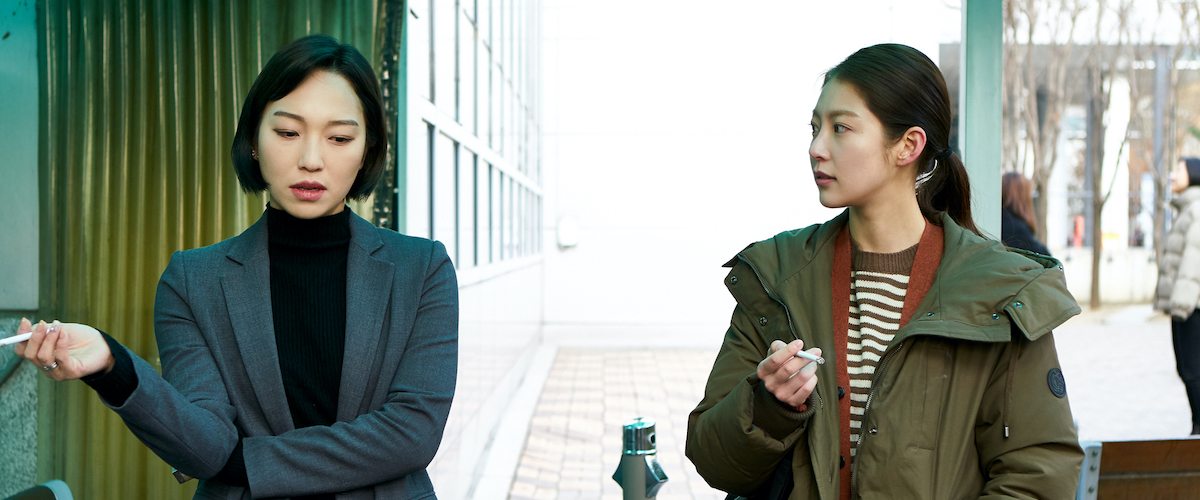The emotional sterility of modern life comes under the microscope of this understated Korean drama in which a young woman who has built self-preserving walls around her lonely existence begins to wonder if the trade-off is worth it. Outside of the soul-sucking call center job at which Jina (Gong Seung-Yeon) excels, her interactions with others are purely parasocial: she streams mukbangs on her phone as she eats alone, wakes up to the blare of her always-on TV, and checks in on her aging father via the security camera she’s surreptitiously installed in his home. When she reluctantly agrees to train the chatty, warm newbie (Jeong Da-eun) at work, Jina is confronted with a direct challenge to her aloofness, but the provocation is easily ignored until a similarly withdrawn neighbor is discovered long after his death.
This triggers a quarter-life crisis for Jina that’s predictably resolved, but Aloners transcends the neatness of this arc thanks to its quietly persistent challenging of the instinct to contort oneself to fit an inhumane world. Hong Sung-eun’s thoughtful first-time direction and Gong’s nuanced performance as a young woman waking up to the creeping dehumanization of herself make Aloners a genuinely thought-provoking reflection on 21st-century life.
Synopsis
Jina is the top employee at a credit card company call center. She avoids building close relationships, choosing instead to live and work alone – until she is suddenly tasked with training a new recruit.
Storyline
A friendly new colleague and the lonely death of a neighbor forces the emotionally detached Jina to reconsider her aloofness.
TLDR
Call centers really are the perfect place to set a movie about how depressing 21st-century life is.
What stands out
In the call center where so much of Aloners is set, a depressed worker is the ideal worker. Customers are only to be talked to according to an algorithmic script — no matter how bizarre their requests — profuse apologies are to be made to abusive callers, and all personal feelings are to be delayed until you’re off the clock. When AI threatens to steal your job, the only solution seems to be to shrink and reshape yourself into the kind of machine you’re competing against. Aloners offers a gentle rebuttal to that conclusion, suggesting instead that dehumanizing work cultures are the only things that need to change. This keen observation overarches Jina’s broader story — she’s also grieving her mother and is estranged from her father — in a way that frames corporate greed as modern society’s ultimate underlying ill, giving Aloners both near-universal relatability (depressingly) and a gentle sense of radical revelation.







